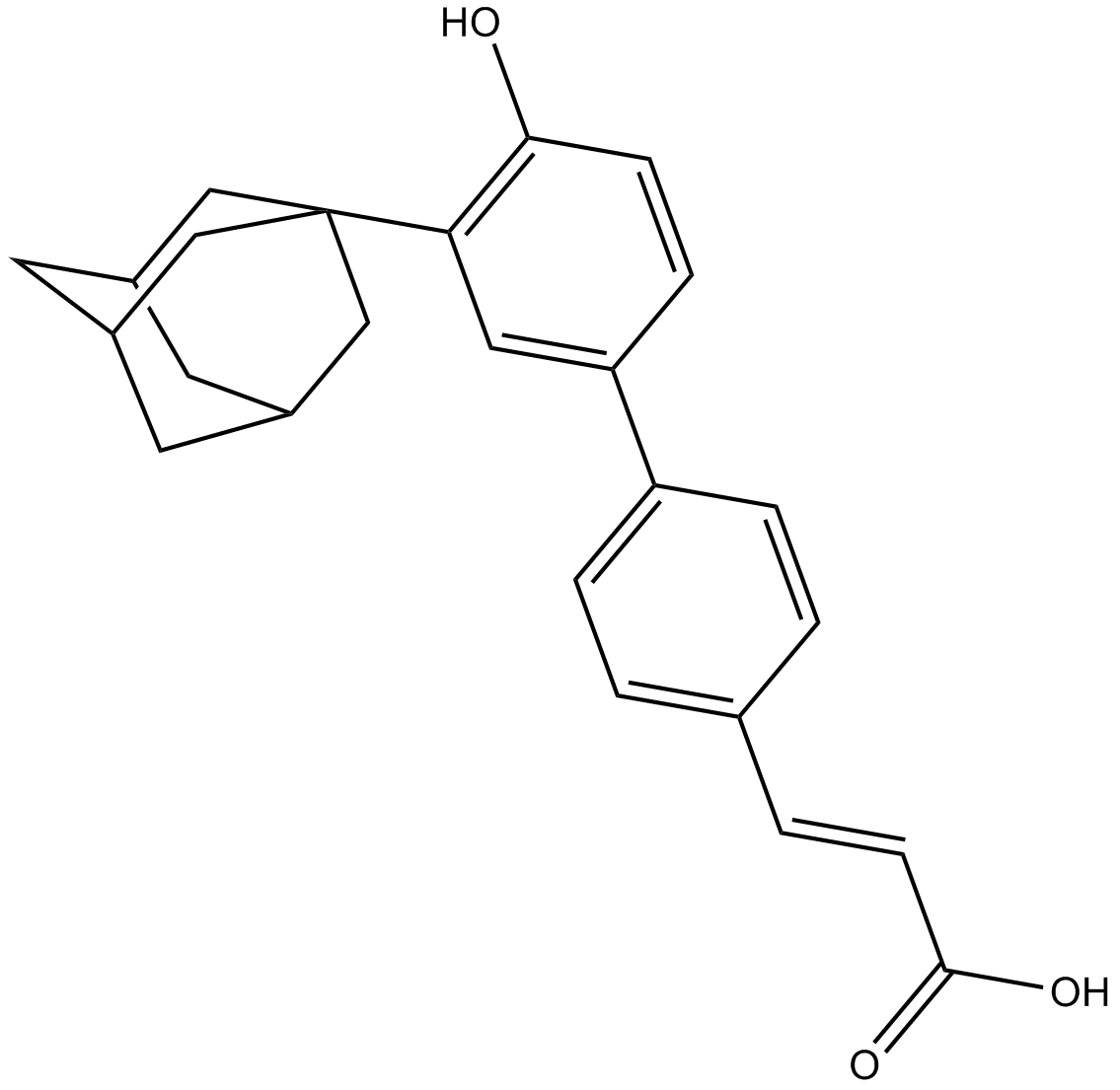Adarotene (Synonyms: ST1926) |
| Catalog No.GC13959 |
An atypical retinoid
Products are for research use only. Not for human use. We do not sell to patients.

Cas No.: 496868-77-0
Sample solution is provided at 25 µL, 10mM.
Retinoid-related molecules are derivatives of retinoic acid and promising antileukemic agents with a mechanism of action different from that of other common chemotherapeutics. Adarotene is a novel atypical retinoid endowed with proapoptotic and antitumor activity.
In vitro: The novel atypical retinoid adarotene exhibited potent antiproliferative activity on a large panel of human tumor cells. It was found that although almost complete loss of ability to activate RARs, adarotene was performing as an effective apoptosis inducer and surprisingly produced DNA damage, which likely contributed to its proapoptotic activity [1].
In vivo: Following oral administration, adarotene was well tolerated and caused tumor growth inhibition in the ovarian carcinoma (A2780/DX) and the human melanoma (MeWo) exnographt in nude mice, supporting the therapeutic interest of this novel agent [1].
Clinical trial: Adarotene is currently only in the preclinical developlent stage and no clinical data are available.
Reference:
[1] Cincinelli R, Dallavalle S, Merlini L, Penco S, Pisano C, Carminati P, Giannini G, Vesci L, Gaetano C, Illy B, Zuco V, Supino R, Zunino F. A novel atypical retinoid endowed with proapoptotic and antitumor activity. J Med Chem. 2003;46(6):909-12.
Average Rating: 5 (Based on Reviews and 30 reference(s) in Google Scholar.)
GLPBIO products are for RESEARCH USE ONLY. Please make sure your review or question is research based.
Required fields are marked with *




















